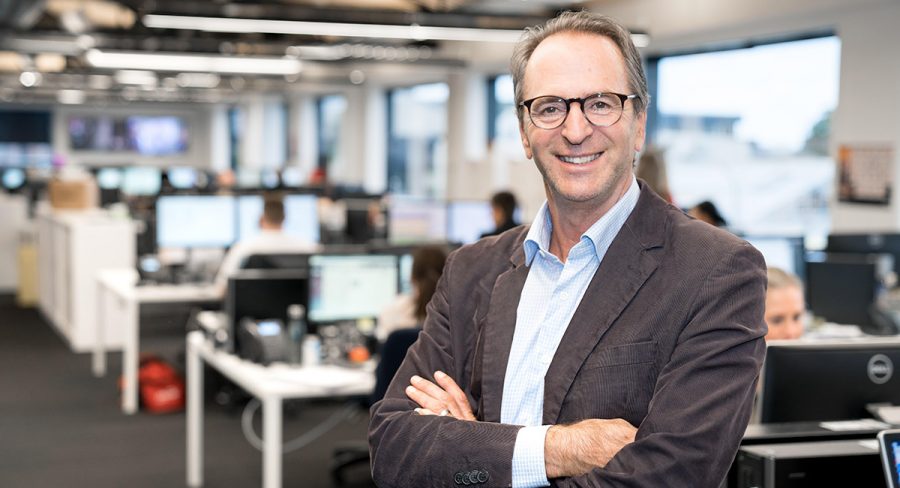Kiwi media folk were pleased – if a little surprised – when MediaWorks hired Michael Anderson as the new chief executive. Chief financial officer David Chalmers had filled in for several months after the troubled Mark Weldon era when executives and talent were pushed or jumped ship. Anderson continued with Chalmers’ low-key style, and it appears to have healed a wounded culture.
For six years, Anderson was a director of Fairfax Media and before that spent 20 years with Austereo, including time as CEO. He knew radio. But radio has been the least problematical part of the MediaWorks equation, and, with a few exceptions like talk station RadioLive, radio had grown its share to take more than 50% of the Auckland radio duopoly.
Surprisingly, six months after he had arrived, the popular head of radio Wendy Palmer left. Anderson says he knows about radio and he understands media – but no – he does not have a background in television. MediaWorks TV had come to a crunch point.
“New Zealand has done good work in radio with the nationwide network brand structure distinct from Australia,” Anderson told Mediaweek. “That was apparent with an 11% market share compared to 9% in Australia.” He says there will be changes for the MediaWorks radio networks next year. “My aim when I got here was to stabilise the company and we have achieved that.”
It was also to improve performance, and he believes he has achieved that as well.
“Three is the only free-to-air TV channel to show growth in 2017, increasing its share of the viewing audience from 19.3% to 20.2%.”
Peak viewing was tracking at 20.2%, he said. The Newshub news operation is drawing 23% of the 25-54 market, according to Nielsen TAM figures provided by MediaWorks. The local version of The Block has had a stellar year, and other reality formats are all up on 2016, he says.
The Three version of The Project has made progress as you would hope after the big first year expenditure (rumoured to be $10 million). The simulcast radio-TV breakfast program, The AM Show, which replaced Paul Henry this year, has scored well on TV, but not on radio.
Anderson says the company is still planning changes in the network radio lineup next year and MediaWorks has already signalled change for talk radio network RadioLive which is a thorn in the side for MediaWorks. It has been unable to break the breakfast radio dominance of Mike Hosking on NewstalkZB.
Like other Australian commercial media folk working here, Anderson says he is perplexed by the ongoing role of the state-owned wholly commercial TVNZ. “We are talking to the new (Labour) government about our concerns in this area.” Many will wish Anderson good luck with that, commercial competitors have been complaining about that for years, but the new Labour government shows few signs of relenting.
TVNZ is a single media operation in an increasing converged Kiwi media market. TVNZ looked at buying MediaWorks. It would allow TVNZ growth into radio, but taking over Three would make TVNZ even more vulnerable to the commercial challenges for free-to-air TV.
A TVNZ-MediaWorks merger looks like a no-go after Commerce Commission rejected mergers for NZME-Fairfax, and Vodafone-Sky. Besides, as Anderson points out, MediaWorks made its views known about big mergers cross-media in its submissions to the Commerce Commission against the NZME-Fairfax merger.
MediaWorks owner Oaktree Capital had been in talks with Southern Cross Austereo about taking the radio assets, but those talks have stalled too.
